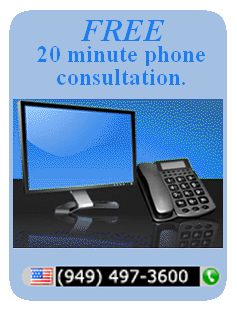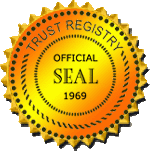Who Can Get Privacy
Is Privacy Still Possible?It has been increasingly difficult to maintain any sense of privacy, especially as computers have become the standard, companies and government sharing information, and social networking. Trying to undo exposure or remove history is mostly a waste of time.Changing your name or creating a whole new identity can be done, but even that may not be effective, or even legal. Instead; the legal and correct method that most beginners employ is to create a corporation or similar organization like a Limited Liability Company (LLC). There are many possibilities and options. Creating a new organization is one step to creating privacy. This could mean starting a corporation, a Limited Liability Company, a partnership, a trust, or a few other variations of new entity. Creating a new entity has additional benefits, but as for privacy; it does not accomplish much overall. Basically, if you create it, or use your own address, or your phone number, or register it, or pay a fee to make it exist, or use your credit card, it can be easily found. Some people use international organizations seeking privacy. Until recently, there were "tax haven" countries designed specifically to manipulate taxes, privacy, and sometimes crimes. This is now almost impossible in today's world simply because of the threats of terrorism. Most governments openly share all information and that now applies to taxes and non-crimes. Recently, almost all tax haven countries agreed to the elimination of privacy for clients between nations. Using international companies and organizations for personal or small business purposes is now a great way to be labeled a criminal, before any facts are actually known. You are often assumed to be guilty until proven innocent. The interesting thing is that for most individuals and companies there is not any true advantage to "go offshore". You can create privacy and operate privately within your own country. The real criminals will still be subject to exposure, yet the private citizen doing their own private business can have real privacy, by just following the rules. PRIVACY - The Rules:
Private OrganizationsA Private Limited Liability Company (LLC), Private Corporation, or Private Asset Trust can be a major tool to attain privacy and protection. The initial costs of each are similar. The ongoing costs are lowest with a Private Asset Trust. After the initial entity is created, additional corporations and LLCs cost the same to create. A Private Asset Trust can be replicated faster, more privately, and at less cost.History dictates that there are traditional types of entities that are used for certain purposes. For instance, a corporation is normally used to run and own a business, but a trust is usually more passive like using it as the organization to collect royalties or own stock, or manage funds, or hold real estate. Laws and requirements vary according to local and national laws and governments. Almost all require permission and fees to exist, and annual reporting, and more fees. 
Trusts are differentTrusts are exempt from permission to exist, fees, reporting, and annual requirements. Trusts are special because they are created on the basic right to create contracts and agreements. Trusts can make up their own rules almost without limits. Trusts can create special powers, special purposes, provide for special circumstances, change managers, change beneficiaries, change jurisdictions, change assets, and can survive for generations. Trusts can hold and manage stock, partnerships, inventory, funds, vehicles, savings, investments, retirement, collectibles, insurance, inheritances, ventures, real estate, or almost any asset.That does not give trusts complete exemption. Some jurisdictions have required trusts to register, or pay fees, or do reporting, or fit into other requirements. They usually accomplish this by stating that they withhold a benefit (such as a tax exemption or ability to have a license) if you do not comply with the requirement. Many times this can be easily solved, or you can select a different place to hold the trust. Corporations and LLCs have the same choices and many have selected Nevada, Delaware, or other jurisdictions for their organization. Trusts do not (in most cases) eliminate taxes, even though you can get privacy (of who pays). For instance, a person with tax problems (or fear) can pay taxes privately through a trust without mixing or identifying his identity. It may also be possible to reduce tax amounts by assigning the taxable income to a person in a low tax bracket. The main tax rule is that you cannot create and use trusts purely for tax purposes. Today, you must create your own privacy. You can attain partial privacy with the use of most organizations, but the easiest, fastest, least costly, and ultimately most effective privacy is with the use of Private Asset Trusts. See more...
The Protection Book for Planning, Privacy, & Protection!Copyright © 1995 -
 
|





